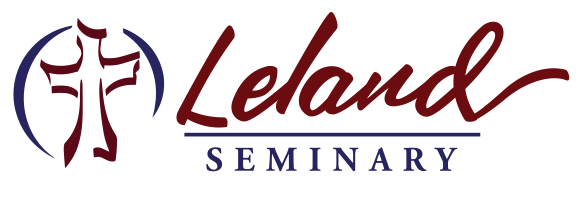History & Theology of the Church
This course is an historical survey of the Christian church, focusing on its major theological movements, issues, controversies, and developments. While attention is given to significant events, personalities, and dates, the primary interest is the role and functions of theology in the formation of the church’s faith and life.
Goals and Course Objectives
Students completing this course should be able to:
◼ Demonstrate proficiency of knowledge of the chronological historical development of the Christian church since its firstcentury inception.
◼ Understand the major theological developments, events and controversies throughout the church’s history and how emerging theology has shaped the Christian church.
◼ Have awareness of the historical figures including the Church Fathers, theologians and important leaders of the Church who have significantly contributed to and impacted the church’s historical and theological development.
◼ Gain appreciation of the church’s ecclesiastic traditions and doctrinal practices through the study of their historical and cultural roots.
◼ Recognize the significant historical role of the church in society.
◼ Apply the knowledge and understanding gained in the course to their own ministry context.
Evaluation
Attendance & Participation –10%
Reflection Study Paper I – 15%
Reflection Study Paper II – 15%
Mid-Term Exam – 30%
Final Exam – 30%
Required Texts
Noll, Mark A., Komline, David and Komeline, Han-Luen Kantzer, Turning Points: Decisive Moments in the History of Christianity, 4th Edition (2022) Papandrea, James L., Reading the Church Fathers: A History of the Early Church and the Development of Doctrine (2022)
Course Format and Procedures
This course is designed as a lecture-discussion class. The instructor will be responsible for presenting pertinent course material in lecture form and facilitating on-going class discussions. Students are expected to prepare for each session by completing all assigned readings. Students are expected to be actively and thoughtfully engaged in class discussions and to contribute constructively to the entire class’s knowledge and understanding.
Mid-Term Exam
The Mid-Term Exam will cover Week 1 – Week 8 lecture material and assigned course reading. The exam will require both a knowledge of the facts and an understanding of their significance. It will consist of truefalse, multiple choice, fill-in-the-blank and matching answers. The exam is a take-home, open-book exam. You may use your class notes and textbooks in taking the exam. Late papers will have points deducted appropriately.
Reflection Study Papers
Two reflection papers will be assigned to cover specific study topics relating to course material. Each study paper must 3-5 pages typed, double spaced, Times Roman or similar font, with normal margins. In response to the reflection paper topic, be sure to:
◼ Demonstrate your knowledge of the concepts, subject matter, authors, publications and prominent theologians.
◼ Include lecture notes, reading materials and discussions to support your work.
◼ Include your “theological perspective” relating to the subject matter.
◼ Be prepared to present and defend your work.
◼ Submit your paper on time electronically. Points will be deducted for late papers appropriately.
Final Exam
The Final Exam will not be cumulative. It will cover only the course material covered in Week 9 – Week 16. Similar to the Mid-Term, the Final exam will require both a knowledge of the facts and an understanding of their significance. It will consist of true-false, multiple choice, fill-in-the-blank and matching answers. The exam is a takehome, open-book exam. You may use your class notes and textbooks in taking the exam. Late exams will have points deducted appropriately.
Milestones
Aug 28 Fall 2023 Term Classes Begin
Sep 28
Reflection Study Paper-I Due
Oct 9-13
Reading Week, NO CLASSES
Oct 26
Mid-Term Exam Due
Nov 16
Reflection Study Paper-II Due
Nov 23
Thanksgiving Break - NO CLASSES
Dec 21
inal Exam Due
Course Schedule
Week 1 – Aug 31: Course Overview and Introduction
Noll: Introduction Papandrea: Chapter 2
Week 2 – Sep 7
Noll: Chapter 1 – The Church Pushed Out on Its Own: The Fall of Jerusalem Papandrea: Chapter 3
Week 3 – Sep 14
Noll: Chapter 2 – Realities of Empire: The Council of Nicea
Week 4 – Sep 21
Noll: Chapter 3 – Doctrine, Politics and the Life in the Word: The Council of Chalcedon
Week 5 – Sep 28
Noll: Chapter 4 – The Monastic Rescue of the Church: Benedict’s Rule
Week 6 – Oct 5
Noll: Chapter 5 – The Culmination of Christendom: The Coronation of Charlemagne
Week 7 – Oct 12
READING WEEK: NO CLASSES
Week 8 – Oct 19
Noll: Chapter 6 – Division Between East and West: The Great Schism
Week 9 – Oct 26
Noll: Chapter 7 – The Beginning of Protestantism: The Diet of Worms
Week 10 – Nov 2
Noll: Chapter 8 -Church and Nation: The English Act of Supremacy
Week 11 – Nov 9
Noll: Chapter 9 – Catholic Reform and Worldwide Outreach: The Founding of the Jesuits
Week 12 – Nov 16
Noll: Chapter 10 – The New Piety: The Conversion of the Wesleys
Week 13 – Nov 23 THANKSGIVING BREAK – NO CLASSES
Week 14 – Nov 30
Noll: Chapter 11 – Discontents of the Modern West: The French Revolution
Week 15 – Dec 2
Noll: Chapter 12 -A Faith for All Worlds: The Edinburg Missionary Conference
Week 16 – Dec 14
Noll: Chapter 13 – Mobilizing for the Future: The Second Vatican Council and the Lausanne Congress on World Evangelization
Dec 21 – Final Exam Due
